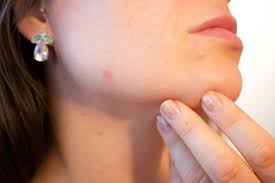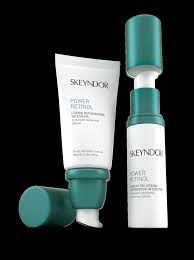What is Retinol? And why is it trending?
3 minuteRead

By- Samyati Mohanty
Retinol (and its substitutes) have gained popularity over the past several years and have even started to appear universally in overnight skin care regimens. Even those who haven't used it right away are fascinated about the renowned component. What is this substance, though, that is so frequently found in creams and serums along with buzzwords like "age-defying," "anti-wrinkle," or "reparative"?
Retinol safety: When and why should you use it?
If you're wondering if it's time to add retinol to your skin care routine, look no further. To learn everything there is to know about this well-liked product, we got down with skin care benifits,procedure,and everything you should know before including retinol in your skincare routine.
Retinol: what is it?
A synthetic version of vitamin A, which is a family of fat-soluble vitamins found in foods like carrots, eggs, and sweet potatoes, is retinol. Retinol is transformed into retinoic acid when administered topically by specific skin enzymes. Retinoic acid can be be used topically, but because it does not organically transform over time, it is more harsher than a retinol cream or serum.
What is retinol used for?
Because it changes the behaviour of ageing cells to make them behave more youthfully, retinol is a skin care product of the highest calibre. It addresses ageing, improves skin vibrancy, and smooths and refines skin texture.
Retinol helps speed up skin renewal, boost collagen production, and lessen the look of ageing, uneven texture, and age spots when it is used into age-preventive skin care regimens.
Benefits of retinol
- The following advantages of using retinol, a type of vitamin A, topically include:
- Due to its reducing action, wrinkles can be avoided as well as existing fine lines and wrinkles can be smoothed out.
- Exfoliate at the cellular level to brighten dull face and reveal fresh, smoother skin.
- reduce breakouts and control oily skin.
- fade hyperpigmentation, dark age spots, and sun spots over time, and even out complexion.
Adverse effects of retinol
Retinol is such a potent chemical that if it is added to a skin care routine too rapidly or used too frequently, it may cause skin to redden or peel. When retinol is first incorporated to a routine, flakiness, dryness, and even some breakouts can happen. However, the skin usually adjusts with just a short bit of time.
Depending on how the skin responds, start out gradually by including it into a nightly routine one to two times a week for the first week. Use it once a week for a month, then increase to twice a week, checking the skin for irritation before doing so if there is obvious redness or peeling.
Before putting another product on top of a retinol cream or serum, the user should give the product 20 to 30 minutes to seep into the skin. Additionally, as skin can become more sensitive to the sun when using retinol, it is essential to use sunscreen every day to protect it.
Although retinol may be the anti-aging ingredient of choice, there is a less potent alternative called bakuchiol, which is derived entirely from plants, is equally effective and has been shown in studies to provide results. Many goods contain this substitute element, which is secure to use during the day.
When should retinol use start?
At the age of 30, it is advised to use retinol products three to four times per week in a skin care regimen. Every other night by your 40s is good, and five to seven times a week in your 50s, 60s, and beyond.
Acne and retinoids
Retinol can be quite beneficial for persons who frequently have acne and outbreaks because of its potent cell renewal property. It promotes normal cell turnover and has an exfoliating effect that prevents pores from clogging and the development of zits, blackheads, and cysts.
Consult a specialist before using retinol on teenagers who have severe acne, and be careful not to combine it with other chemicals that can intensify its effects.
Adding extra retinol could irritate the skin if you currently use an acne regimen or products that contain benzoyl peroxide, salicylic acid, or a prescription treatment that may already contain some kind of retinoid and may even be stronger than over-the-counter skin care.
Disclaimer: Always consult a dermatologist if possible before bringing it in your routine.
Write, Record and Answer! Consume Unlimited Content! All you need to do is sign in and its absolutely free!
Continue with one click!!By signing up, you agree to our Terms and Conditions and Privacy Policy.














